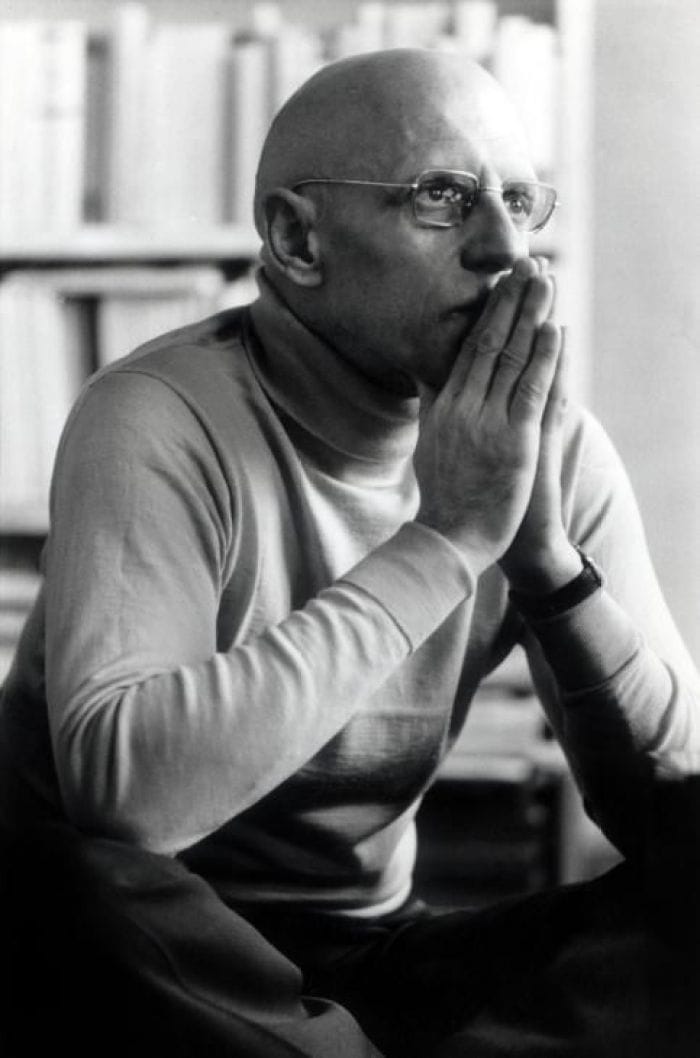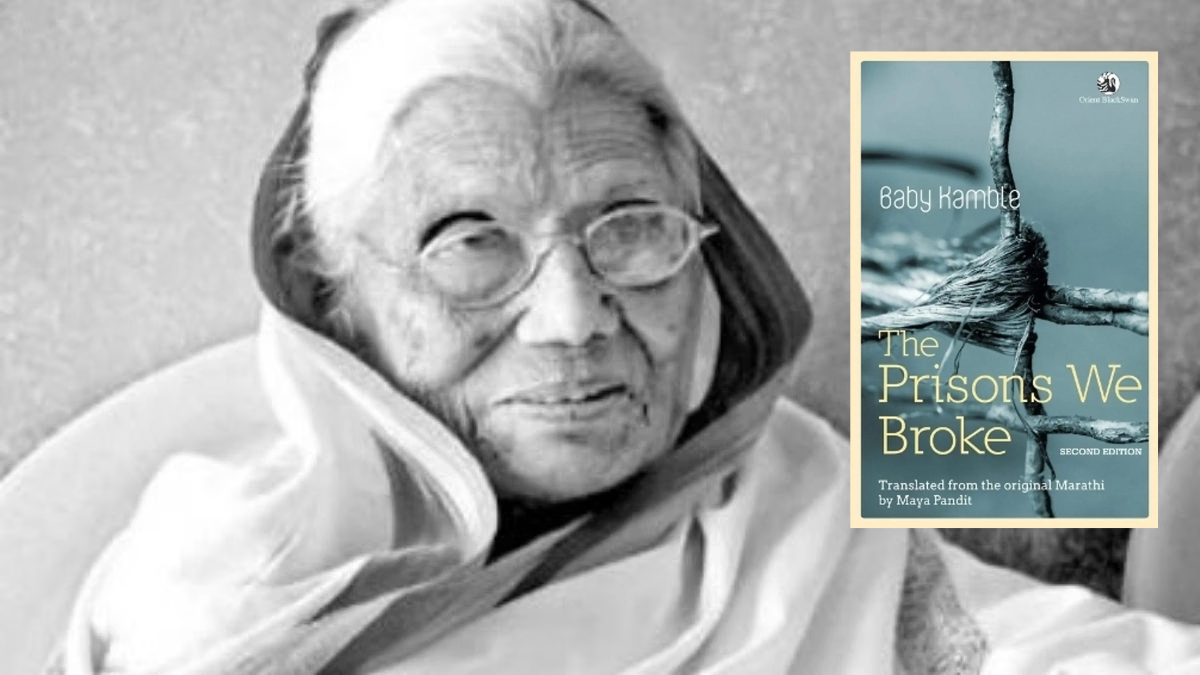Governments track our biometric data, from fingerprints to facial recognition, and big tech tracks our heart rate and step count through health apps. During a pandemic, the government orders lockdowns and rolls out vaccination drives. In today’s world, power is not just about laws, but it controls life. It can ‘make live and let die‘. This conception of power is at the heart of what Michel Foucault calls biopolitics. Biopolitics is the politics of controlling the human body at a large scale, of controlling population and life itself. To understand biopolitics, it is necessary to first understand biopower, which works in tandem with other forms of power that govern the modern world.
Michel Foucault was a French theorist and philosopher, whose work primarily addresses the relationship between knowledge and power. He revolutionised how we perceive power by arguing that it isn’t possessed by a person or an institution, rather it is omnipresent. Power circulates through everyday practices. It is all pervasive and intricately connected to knowledge. Biopower, then, is a ‘power that exerts a positive influence on life, that endeavours to administer, optimize, and multiply it, subjecting it to precise controls and comprehensive regulations‘, as Foucault defines it in his work The History of Sexuality. Through biopower, basic biologic features of humans become the focus of political strategy.
Evolution of biopolitics
During the seventeenth century, sovereign power began to transform. The first type that rose was disciplinary power, and the second was biopower. Still separate forms of power throughout the eighteenth century, these two forms of power merged in the nineteenth century and created a nexus of technological power. Initially, biopower operated through anatamo-politics, which focuses on the individual body. The changing place of anatomy within the medical field meant that doctors focused more on what’s inside the body and how it works, and thus produced a new regimen of truth.
This meant there was a discourse on what constitutes a proper body in terms of size, shape, height, weight, and other similar factors. The individual body was also surveilled and regulated in terms of movements and behaviours. These norms, when extended to the broader society, led to biopolitics. The body became a collective entity and led to the formation of concepts such as birth rate, fertility ratio, and life expectancy.
Foucault also connects the emergence of biopolitics to a change in governmentality. While the earlier sovereign power was a repressive power, biopower did not use coercive policies. In fact, Foucault argues that biopower was an essential part of the development of capitalism. The control over the body helped with the characterisation of the body as a cog in the machine of industrial capitalism. Foucault also says that it is modern liberal governance that led to the flourishing of biopolitics.
Liberalism tries to minimise government control while maximising productivity. The shift to liberalism did not increase freedom, but instead perfected control through covert measures. Moreover, the birth of biopolitics also became a social strategy. By creating the concept of population, there was also a need to create techniques to calculate, classify, and organise it. Demographics, statistics, and especially medical sciences played a role in the development of discussing population data and how to improve the living conditions of people.
Demographics, statistics, and especially medical sciences played a role in the development of discussing population data and how to improve the living conditions of people.
State racism, according to Foucault, becomes an inherent characteristic of biopolitics. As mentioned earlier, there is a discourse on what constitutes a proper body. Any deviation from this norm is seen as abnormal. Moreover, this leads to the creation of racialised bodies which are outside the medical establishment — a medical establishment which is designed to be exclusionary. Someone is always either directly excluded or pathologised. In his work Society Must Be Defended, Foucault says, there will be an ‘internal racism of permanent purification, and it will become one of the basic dimensions of social normalization‘.
Contemporary relevance of biopolitics
Foucault’s idea of biopolitics is very relevant today in the context of many global crises. As it involves the large-scale management of populations, it is visible through various governance measures like surveillance, healthcare policies, population control measures, and biometric identification systems. Antonio Negri and Micheal Hardt argue that biopolitics has shifted against the backdrop of globalisation. Through their concept of empire, they argue that biopower is now all-pervasive in international institutions like the IMF and World Bank.
What’s also important to note is how biopolitics is not an innocent attempt to preserve all life, but helps choose who is more important. This creates hierarchies that are evident in how governments deal with pandemics, climate crises, and make healthcare policies.
The COVID-19 pandemic provided a clear-cut demonstration of biopolitical governance in action. Calculative technologies such as six feet social distancing, fourteen day isolation period, and washing hands for longer than twenty seconds (while singing Happy Birthday to You twice over) were employed. Governments across the globe calculated risk through metrics like death toll and infection rates. The pandemic also bared inequalities in who is worthy enough of protection. As we saw in India, migrant workers were extremely vulnerable. Across the globe, there was a massive inequality in the availability of and access to vaccines, exposing how differential vulnerability is embedded in our social structures.
Women’s reproductive rights remain tightly regulated, as seen through the overturning of Roe v. Wade in the US. The biopolitics of climate change reveals how ecological crises are managed through market-based mechanisms that paradoxically deepen environmental destruction while claiming to address it. Moreover, the countries facing the brunt of global warming and climate change (like island nations) are generally the ones that have little to do with producing carbon emissions.
Moreover, the countries facing the brunt of global warming and climate change (like island nations) are generally the ones that have little to do with producing carbon emissions.
Racialised biopolitics is practiced through migration as well, especially evident in how border porosity shifts to protect privileged populations while discriminating against others. And one of the most fast-growing forms of biopolitical control is digital surveillance technology. This surveillance capitalism monitors and influences consumption patterns using techniques like AI-based analytics and biometric tracking.
Therefore, it is evident that Foucault’s biopolitics is still very relevant for understanding contemporary governance challenges. However, these require us to include theories extending beyond the original Foucauldian framework. Achille Mbembe brings in the concept of necropolitics, arguing that the inequality is not just through power over life but also through which groups are more vulnerable to a slow death. By integrating biopolitics with Mbembe’s theory, feminist analyses, and postcolonial critiques, it is possible to create frameworks that can better interpret current power relations.
References:
Adams, Rachel. “Michel Foucault: Biopolitics and Biopower.” Critical Legal Thinking, 10 May 2017, criticallegalthinking.com/2017/05/10/michel-foucault-biopolitics-biopower/.
Guignion, David. “What Is Biopolitics? | Michel Foucault | Keyword.” YouTube, 2020, youtu.be/MrsJNmwoX6g. Accessed 20 Aug. 2025.
Jayasinghe, Kelum, et al. “Bio-Politics and Calculative Technologies in COVID-19 Governance: Reflections from England.” International Journal of Health Policy and Management, Sept. 2021, https://doi.org/10.34172/ijhpm.2021.134.
Singh, Dr Bachitter. “Biopower and Biopolitics: Foucault on Bodies, Power, Control.” PureSociology, 9 Nov. 2024, puresociology.com/biopower-foucault/.
Takács, Ádám. “Biopolitics and Biopower: The Foucauldian Approach and Its Contemporary Relevance.” Bioethics and Biopolitics, vol. 8, Springer, Cham, 2017, pp. 3–15, https://doi.org/10.1007/978-3-319-66249-7_1.
Wikipedia Contributors. “Biopower.” Wikipedia, Wikimedia Foundation, 6 Feb. 2019, en.wikipedia.org/wiki/Biopower.
About the author(s)
Samhita is a final year student of English Studies at IIT Madras. She enjoys reading, and especially loves engaging with women's fiction, as part of her academic research as well. She's a huge fan of sudokus, crosswords, and all sorts of puzzles.








